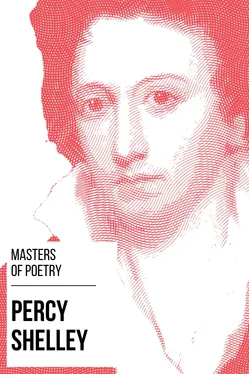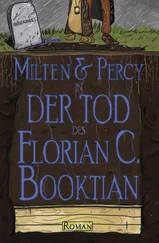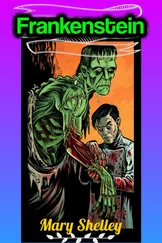Godwin, too, affords a capital example of a shattered ideal. He was the Socrates of the young poet, and Shelley, who derived the main articles of his political and social creed from the radical philosopher's great book, was already adoring him as one in the pantheon of the immortal dead, when he learned from Southey that his master and emancipator still walked the earth. He sat down at once and wrote a characteristic epistle, in which he expressed himself with the enthusiasm of a disciple not yet twenty, and respectfully but earnestly besought the living friendship and advice of him whom he regarded as the light of the new age. Godwin was interested, and long and frequent letters, admirable in tone upon both sides, passed between them. The elder endeavored to check the irrepressible activity and eager plans of the young reformer, who had no notion of waiting until he should grow old before setting to work to remake society; and the youth, on his part, exhibited a deference and willingness to be guided such as he never showed before or afterwards. The first modification of Shelley's idea of Godwin came in consequence of their personal acquaintance, as was natural; but in discovering that Godwin was really an idiosyncratic mortal, as well as an illuminating intellect, Shelley did not yield his admiration for the sage. One can still see the unbounded astonishment of the poet, which Mary Godwin describes, when she told him her father was annoyed by his addressing him as "Mr." instead of "Esq.," in directing his letters. They got on very well together, however, until Shelley ran away with Mary,—a practical exposition of Godwin's doctrines, which he, having now grown respectable and socially cautious, did not at all relish. Shelley had before this aided Godwin somewhat in financial embarrassments. That philosopher was always in debt; and the young disciple, who, though the heir to a great property, had no way of realizing anything from it except by selling post-obit bonds, agreed with his master that philosophers have a paramount claim on any money their friends might own. He was willing to discharge his duty by getting Godwin out of debt, or assisting him as far as he could in the matter. When he returned to England with Mary he found that the philosopher would not see or forgive him, and positively declined to correspond except upon the subject of how much money Shelley could give him. Shelley had no thought of not doing his own duty, because of the conduct of other people; and while he felt Godwin's hardness and inconsistency, nevertheless he would relieve that great mind from the little annoyances consequent on borrowing money without providing means of repayment. He, however, was not blind; and what he learned of Godwin in the course of these transactions had a destroying influence upon that ideal of the man which he had formed in his first days of revolutionary hope. In the second year of his life with Mary he told the philosopher what he thought of the whole matter in a letter which one may be excused for reading with peculiar satisfaction:—
"It has perpetually appeared to me to have been your especial duty to see that, so far as mankind value your good opinion, we were dealt justly by, and that a young family, innocent and benevolent and united, should not be confounded with prostitutes and seducers. My astonishment, and, I will confess, when I have been treated with most harshness and cruelty by you, my indignation, has been extreme, that, knowing as you do my nature, any considerations should have prevailed on you to have been thus harsh and cruel. I lamented also over my ruined hopes of all that your genius once taught me to expect from your virtue, when I found that for yourself, your family, and your creditors you would submit to that communication with me which you once rejected and abhorred, and which no pity for my poverty or sufferings, assumed willingly for you, could avail to extort. Do not talk of forgiveness again to me, for my blood boils in my veins, and my gall rises against all that bears the human form, when I think of what I, their benefactor and ardent lover, have endured of enmity and contempt from you and from all mankind."
The writer was that youth of twenty-three years, of whom Godwin remarks that he knew "that Shelley's temper was occasionally fiery, resentful, and indignant." It is true that it was so, and one is pleased to find upon what fit occasions it broke out. Shelley, however, had undertaken a hopeless and endless task in trying to extricate Godwin from debt, and he spent much money, raised at a great sacrifice, in the vain attempt. What he thought of these transactions, when his judgment had matured, we know from another delightfully plain-spoken letter, written five years later, in answer to renewed importunities:—
"I have given you the amount of a considerable fortune, and have destituted myself, for the purpose of realizing it, of nearly four times the amount. Except for the good-will which this transaction seems to have produced between you and me, this money, for any advantage it ever conferred on you, might as well have been thrown into the sea. Had I kept in my own hands this £4,000 or £5,000, and administered it in trust for your permanent advantage, I should indeed have been your benefactor. The error, however, was greater in the man of mature age, extensive experience, and penetrating intellect than in the crude and impetuous boy. Such an error is seldom committed twice."
But long before this, Shelley, though his estimate of Godwin's powers, in common with that of the people of the time, remained extravagant, had found out the difference between the author of Political Justice and Plato and Bacon.
If any one wonders at the extent to which Shelley let himself be fleeced by the philosophical radical of Skinner Street, he should reserve some astonishment for the remainder of the shearers. Shelley, it is to be remembered, was never in possession of his property, and had only a small allowance at first, and a thousand pounds a year after he was twenty-four years old; he was extravagant in his generosity, and gave money with a free hand, whenever he had any, to the poor about him, to his needy friends, and to causes of one kind and another which excited in him his passion for philanthropy. He was, consequently, in his early days, commonly in debt for his own expenses, and often in danger of arrest and imprisonment. When he mentioned his days of poverty, in that letter to Godwin, it was not a mere phrase; and though a settlement was at last made which provided for him sufficiently, he was never ahead in his savings. Under these circumstances, his biography at times reminds one of the old comedy, with its mob of parasites and legacy-hunters. He was simply victimized by those who could establish any claim on his benevolence. No doubt he gave willingly, with all his heart, to Peacock and Leigh Hunt and the rest, as he did to Godwin, and thought it was his duty as well as his pleasure; but his generosity does not alter the fact that his acquaintances were very dull of conscience in money matters. One begins to relent a little toward Hogg, remembering that he did actually share his own funds with Shelley just after the expulsion from Oxford, when the latter could get no money, owing to his father's displeasure; and for Horace Smith, the banker, who sometimes advanced money to Shelley, and not too much, one has a feeling of amazed respect.
The worst misfortune of Shelley, however, in the friends he made, was to have met and married Harriet Westbrook. The circumstances of their union and its unlucky course and tragical close have lately been for the first time fully set forth. The marriage on Shelley's side was not originally one of love, but it became one of affection. For two years life went on without the discovery of anything to break the happiness of the pair; but after the birth of their first child trouble arose, and rapidly culminated. It is most likely that the sister-in-law, Eliza, who lived with them, was the source of the original dissension by her interference, arbitrariness, and control of Harriet; but, as Shelley had grown in mind and character, the difference between him and his wife in endowment and in taste was bound to make itself felt, and to put an end to the unity of study and spirit of which he had dreamed; and it is clear enough that she had tired of the studies and the purposes in which Shelley's life consisted, and that though overborne for a time, by his influence, she was now showing herself worldly, frivolous, and weak. She had married the heir to a baronetcy and a fortune, and desired to profit by it. In one way and another she had become hard and unyielding toward Shelley, had made him thoroughly miserable, and, in the earlier months of 1814, was living away from him; and he, on his side, as late as May in that year, as appears from stanzas now first printed, was trying to soften her. While affairs were in this condition he first met Mary Godwin, and he fell passionately in love with her, all the more because of the long strain of dejection and loneliness; and in addition to the story of the dissensions that had arisen in his family, and the difference of character and temperament which had declared itself between his wife and himself, Shelley is said to have told Mary that Harriet had been unfaithful to him. If he did not tell her then, he did afterwards. On what evidence he relied we do not know; nor is there any confirmatory proof from other quarters except a letter of Godwin's written after Harriet's suicide, in which he states the same fact as coming from unquestionable authority unconnected with Shelley. Not long before his death Shelley renewed the charge, though in a veiled and inferential way, in a letter to Southey, in which he defends himself for his conduct in this matter, declares his innocence of any harm done or intended, refuses to be held responsible for the suicide of Harriet, and practically asserts that he had grounds for divorce, had he chosen to free himself in that way. There is no need to prove that Shelley was right in his belief of his wife's infidelity; but if it be thought that Shelley did in truth believe her guilty, that has much to do with our estimate of his action. He was twenty-two years old, or nearly that, and he held radical views as to the permanence and sacredness of the marriage bond, as also did Mary, who inherited them from her mother. Their decision to unite their lives, under these circumstances, was a practical admission that Shelley's home was in fact broken up, and that he was free to offer, and Mary to accept, not legal union, but a common home, with the expectation and purpose of complete devotion one to the other, in a pure spirit and for the ordinary ends of marriage.
Читать дальше












